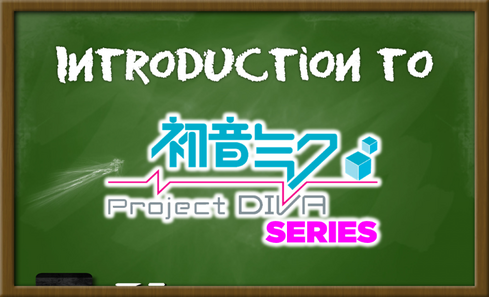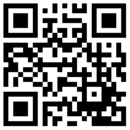Introduction to Project DIVA
Welcome to Hatsune Miku: Project DIVA series, where "SAFE" is no longer considered safe at all.
What's this thing? Kinda looks like a weeby version of Guitar Hero, you say? If u think that way we will definitely send Mikudayo after u :3Alas, it goes far, far deeper than that. Sit comfy, because I'm about to tell you everything you need to know about VOCALOID, Hatsune Miku, and her beautiful rhythm game series.

VOCALOID is a voice synthesizer software created by Yamaha Corporation. Similar to a MIDI composer, it lets you produce pleasant artificial singing, although you need to purchase a VOCALOID voicebank to do so. There's a whole bunch of VOCALOIDs out there, available in a variety of languages, and one such 'LOID is our little darling Hatsune Miku.

Hatsune Miku (eastern order, so given name last), is a product of Crypton Future Media. Released in August 31, 2007, her voicebank was an instant hit, earning around 57,500,000 yen (US$484,639) in just two weeks! Her popularity is so immense, she has hundreds upon thousands of songs available across video-sharing websites and albums, as well as live concerts, a whole lot of collectable figures, cameos in anime and manga, fashion and cosplay, and her very own rhythm game series!
Miku isn't the only one, though! Crypton's other VOCALOIDs, also featured in the Project DIVA series, are Kagamine Rin and Len: the wacky blonde duo, Megurine Luka: the glamorous rose-haired songstress, reliable big sister MEIKO, and suave big brother KAITO.

Hatsune Miku: Project DIVA is a rhythm game series developed by SEGA, under close inspection by Crypton Future Media. The main series is released exclusively on PlayStation platforms, but it's spin-offs have appeared on iOS, Android, and Nintendo 3DS. There's also an arcade version available! The game features the above-mentioned VOCALOIDs and a wide variety of popular songs by a lot of different producers, and the goal of the game is to perfect Miku's pitch and lead her entourage to complete global domination!

It's easy, actually! Button targets pop up all over the screen, and you are to hit the button when the melody icon flies into the target. A colourful background video is always playing in the background, so make sure to not get distracted!
The basic symbols are the 4 PlayStation buttons (![]() ,
, ![]() ,
, ![]() , and
, and  ). If you see them, hit the corresponding button to score a point. Make sure your timing is on-point, though. Hit the note perfectly to the tune of the song, and you get a "COOL" judgement! If you're off a bit, your combo will be broken with a "SAFE"! Miss a note entirely, and you'll be slammed with a "WORST/AWFUL/MISS" judgement. Each song has a Chance Time segment, which lets you score big, big, big points!
). If you see them, hit the corresponding button to score a point. Make sure your timing is on-point, though. Hit the note perfectly to the tune of the song, and you get a "COOL" judgement! If you're off a bit, your combo will be broken with a "SAFE"! Miss a note entirely, and you'll be slammed with a "WORST/AWFUL/MISS" judgement. Each song has a Chance Time segment, which lets you score big, big, big points!
In the game's sequels, more kinds of symbols are introduced:
From ''Project DIVA 2nd'' are Double Notes and Hold Notes. Double notes are arrow symbols with a "W" on it that required pressing both a face button and the D-Pad that match the face button's position. Hold notes have strips connected to each other. Once you pressed them, keep holding the button until the end part of the strip lands on the target. Failure to do so, or holding the button for too long will break the combo.
From ''Project DIVA F'' are Scratch Notes (☆). They're star-shaped and can only hit by swiping the touchscreen (PSVita)/analog stick (PS3). Chance Time is given a new functionality, in which a big star appears at the end of it. Hit it correctly, and you're awarded with a shiny alternate ending to the background video.
From ''Project DIVA F 2nd'' are Double Scratches and Link Scratches. Double Scratch notes are like normal Double notes, but can only hit using both fingers. Link Scratches have lines connected to each other. You don't need to hold your finger. Just swipe them consecutively to earn big points.
From "Project DIVA X" are Rush Notes. That is indeed a mashable note which you can press a button as fast as you can until it vanishes. Not too much or you'll mess up with any of the following notes close-by.
From "Project DIVA Future Tone" are Slide Notes (instead of Scratch Notes) and Hold Notes where you need to hold three or even all four buttons. This game is quite challenging on higher difficulties!
The melody icons can appear from anywhere on the screen, so keep a close eye on those targets.

It depends on your playstyle and gameplay skills. There are 4 types of difficulty: Easy, Normal, Hard, Extreme (although the first PSP game lacks that last one). Casual players and newbies shouldn't have much trouble with Easy or Normal, while rhythm game veterans should feel right at home with Hard or Extreme. Easy only uses one button, while Normal uses two, and the harder duo use all buttons available!
Starting with Project DIVA F, things get trickier with Technical Zones. Most difficulties have two of these segments, where you are required to keep a perfect combo going until the counter ticks down to zero. If you fail this segment, your performance will drop sharply, and you might even fail the song... so be careful!
Do you wanna be the very best? Like no one ever was? Don't get cocky, Extreme mode is known to challenge even the mightiest of all rhythm masters! Make sure to get nice and familiar with the game's ins and outs on Normal mode, okay?
If you're having too much trouble, or not enough trouble, you're in luck! Spend in-game currency, the DIVA Points (DP), on help items that give you a big advantage! (mind you, your score will be decimated, but that's all the more motivation to get even better) On the flipside, you can also buy challenge items that make it even tougher to pass the game's many difficult charts, but you get a wonderful increase in points at the end.
DIVA Points aren't just used for rhythm game items, though. You can also use them to purchase modules (costumes), accessories, UI skins, furniture and room items.
Furniture and room items are for a separate game mode, the DIVA Room. This is where Miku and pals go to unwind after an intense day of rhythm gaming, and you can join them to hang out and stuff. You can give them presents and even give them a rub down to increase their love and affection for you! (just on the head, though!)
Ok, new topic is about Project DIVA X. Since there is so much change in that game, I'll cut the story short. DIVA X now has a one new game mode, Live Quest mode where you have to collect Voltages to fill up the Element gems to unlock a new area. There also be conversation cutscenes like in RPGs where Vocaloids talk to each other about live events. But since the game is all Japanese, many non-Japanese speakers will have a hard time knowing the story of it. So it's best to wait for a potential English release.

Nope! Project DIVA F and F 2nd and have been released worldwide on PS3 and PSVita while Project DIVA X is available on PS4 and PSVita! Make sure to buy them and support Miku's quest for world domination! Also Project mirai DX for the 3DS is available in the west too, so Nintendo peeps can partake in the Vocalove, too!

Unfortunately, the first 3 games were only released in Japan. But luckily, the PSP is region-free! It doesn't matter where you got yours, it can totally play them! Even better? They've all got very beautiful English patches: PjD1, 2nd, 2nd#, extend
The three PSP games had HD versions in the form of the Dreamy Theater series, a trio of downloadable add-ons playable on PS3. You'll need a PSP and a save file for the games, though, or else it won't work at all! Note that each Dreamy Theater is only compatible with its corresponding PSP game. The first one only works with the first PSP game, DT 2nd only works with 2nd, and DT Extend only works with extend.
HOWEVER! Because Nintendo are kinda jerks, the 3DS system is completely region locked. Thus, importing the Project mirai games is not recommended unless you have a Japanese 3DS.
GOOD THING THAT SEGA JAPAN actually heard our voice and decided to release the 3rd Project mirai game called Project mirai DX to the West as well so we also can have what Japan has! mirai DX has all the contents from the first 2 games, so don't fret that you'll be missing out much.
If you have an iOS device, you can try out the MikuFlick games. It's vaguely similar to Project DIVA, although you use the Japanese keyboard to play. It's all a bit complex, but still good fun. Also available on iOS and Android is Music Girl: Hatsune Miku, a Miku-themed music player. Watch Miku bounce around to the songs you play!
We forgot Arcade Future Tone, you say? Well, not everyone can have a chance to play the Arcade version since it is only available in few countries. But fear not! You can now experience Arcade aesthetics in your own home with the PS4 port of the game!

Thank you for reading! And remember, happiness is your duty! If you're not happy…you're |)34|).






